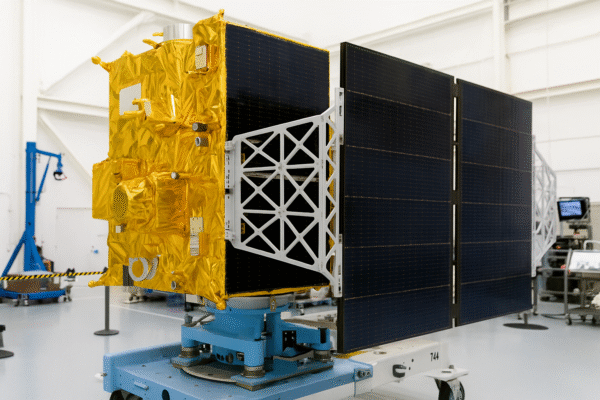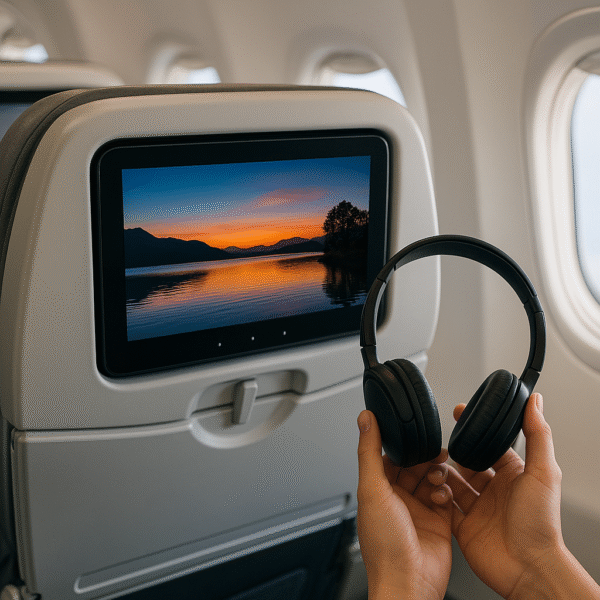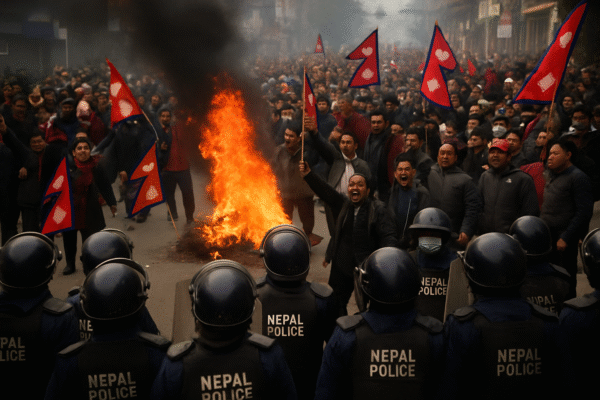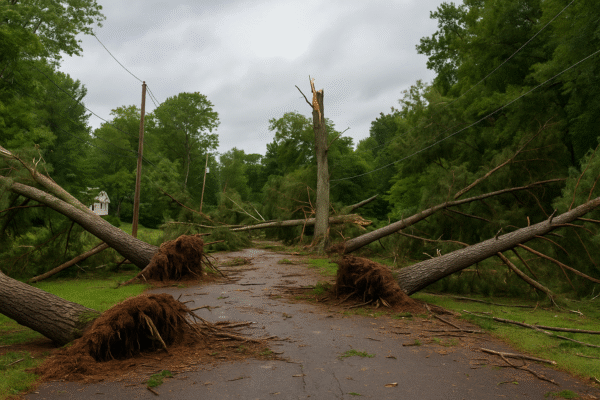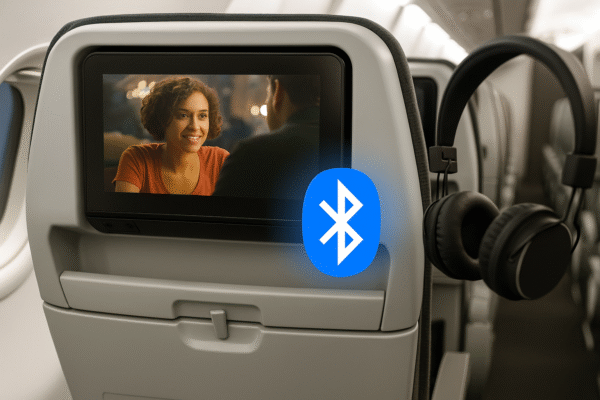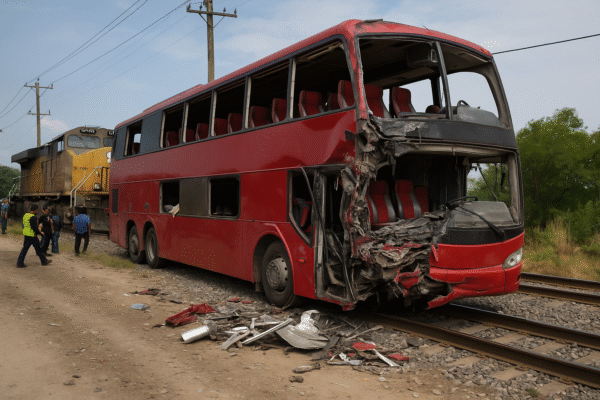Mexico has been left in mourning following a devastating transportation disaster near Mexico City, where a bus carrying dozens of passengers collided with a freight train. The collision, considered one of the deadliest in recent years, resulted in the tragic loss of 10 lives and left 61 others injured. The heartbreaking event has raised fresh concerns about road and rail safety, while sparking widespread international support.
The accident occurred when a double-decker passenger bus attempted to beat traffic by crossing the railway tracks. Unfortunately, it was struck by a freight train at high speed, tearing through the vehicle and dragging it along the rails. Witnesses described scenes of chaos, with local residents rushing to help survivors and emergency responders working tirelessly to rescue the injured.
Authorities confirmed that many victims were rushed to nearby hospitals, while investigations were launched immediately to determine the root causes of the crash. The initial reports suggest that the driver’s attempt to bypass traffic congestion directly contributed to the tragedy.
UAE Expresses Condolences and Support
In the aftermath of the crash, the United Arab Emirates (UAE) issued a heartfelt statement through its Ministry of Foreign Affairs. The UAE extended its deepest condolences to the families of the victims and expressed solidarity with the Mexican government and people during this painful time.
The message emphasized the UAE’s commitment to supporting Mexico not just with words of sympathy, but also by reaffirming the value of unity and cooperation between nations in times of crisis. This show of compassion is consistent with the UAE’s humanitarian approach and its long-standing tradition of standing with nations during disasters.
For Mexico, the UAE’s solidarity is a reminder that the pain of this loss is shared far beyond its borders. Expressions of support from other countries help strengthen international ties while offering emotional comfort to affected communities.
Tourism Impact and Safety Concerns
Mexico, known worldwide for its vibrant culture, ancient ruins, and world-class beaches, is one of Latin America’s most visited destinations. Tourism plays a vital role in its economy, with millions of international visitors every year exploring cities like Cancún, Oaxaca, and Mexico City.
However, transportation safety remains an ongoing concern. Accidents such as this tragic bus-train collision cast a shadow on travel safety, raising questions for both locals and tourists. Visitors often rely on road and rail networks to access popular destinations, and the government has recognized the importance of ensuring these systems are reliable and secure.
Experts believe the crash should serve as a turning point for Mexico’s transportation safety reforms. Better infrastructure at level crossings, stricter enforcement of traffic laws, and awareness campaigns aimed at both drivers and pedestrians are key measures that could help prevent future disasters.
Global Solidarity with Mexico
The UAE was not alone in expressing sympathy. Governments, organizations, and humanitarian groups worldwide have offered support to Mexico. Such expressions of compassion highlight the role of global unity in the face of human tragedy. Just as natural disasters and pandemics have shown, international cooperation plays an essential role in healing and recovery.
Mexico’s government has pledged to conduct a thorough investigation and take decisive steps to prevent similar tragedies. With the world watching, the incident underscores the urgency of strengthening safety protocols and ensuring accountability in transport operations.
Lessons for the Future
The Mexico bus crash has become a symbol of both tragedy and resilience. It illustrates the risks faced in rapidly expanding transportation networks, especially where urban growth places pressure on infrastructure. Authorities have been urged to install automated barriers at crossings, expand surveillance systems, and enforce harsher penalties for reckless driving.
International partners like the UAE may also play a role by sharing expertise, technology, and safety strategies. Many countries with advanced rail systems have successfully reduced accidents by adopting intelligent monitoring tools and community-focused safety campaigns. Mexico has the opportunity to learn from these models and adapt them to its unique challenges.
A Shared Path Toward Healing
For the people of Mexico, the loss of ten lives is immeasurable, and the recovery of 61 injured individuals will take time and care. Yet, the global wave of sympathy—including the UAE’s strong statement of solidarity—has brought a measure of comfort.
As Mexico looks ahead, tourism leaders emphasize that while tragedies can shake confidence temporarily, the resilience of the nation’s travel sector will endure. The hospitality industry, local communities, and international allies will continue working together to ensure safer journeys for everyone—locals and visitors alike.
The UAE’s solidarity stands as a powerful message: even in moments of heartbreak, compassion unites nations and strengthens global bonds. Through cooperation, safety reforms, and respect for the victims, Mexico can honor those lost while building a safer future for its citizens and the millions who visit every year.
For more travel news like this, keep reading Global Travel Wire

